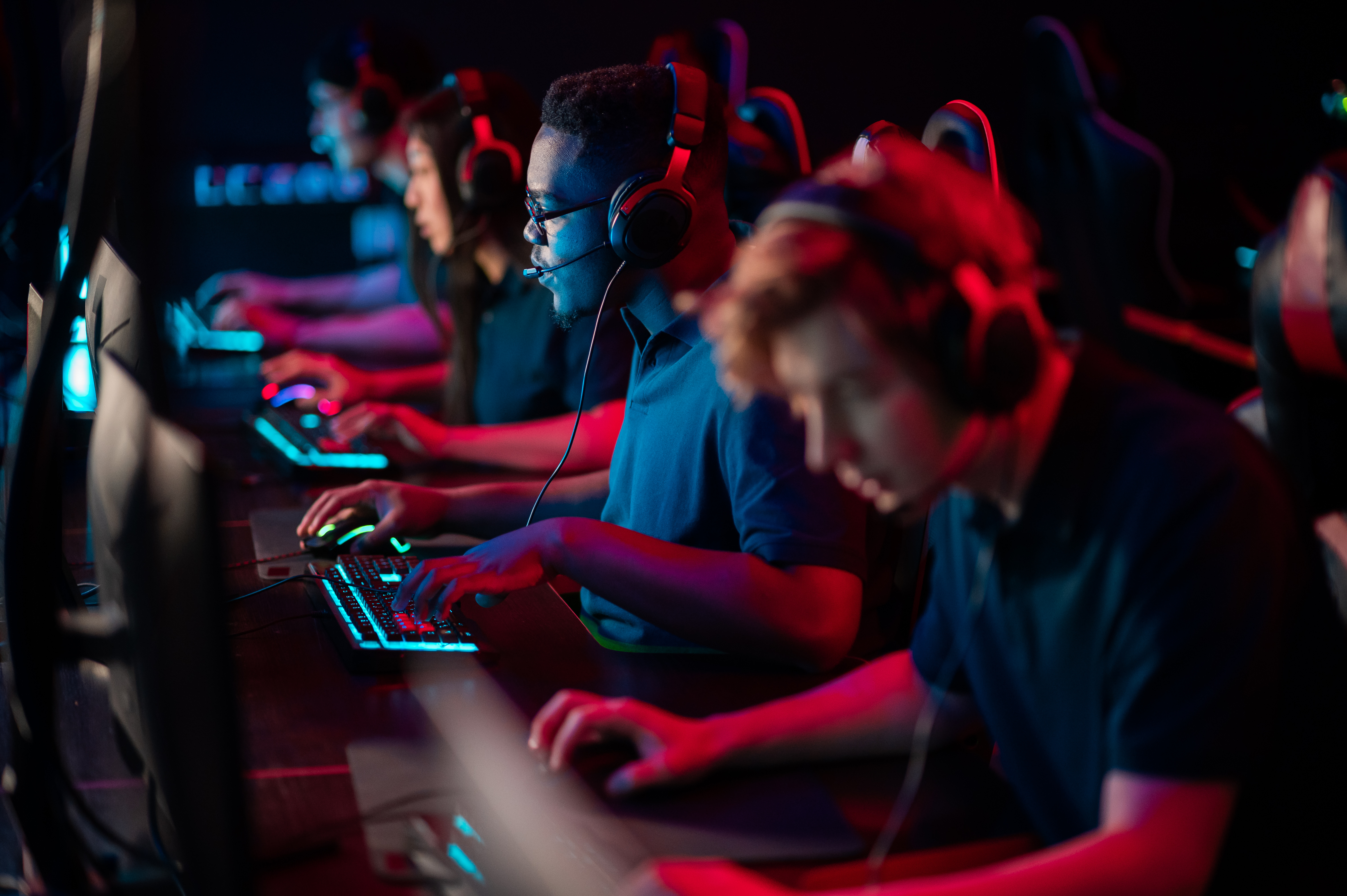Gone are the days of gamers ostracised from society and exiled into their dark bedrooms. The online competitive gaming world has become a multi-billion-dollar industry with an estimated 3.24 billion gamers participating world-wide. With countless career opportunities, and more on the rise, is the future of inter-school sporting competitions and lesson plans found in eSports?

Within the last decade, eSports has gained serious international traction. In 2021, the widely popular team-based game, League of Legends, held their world championships in Reykjavík, Iceland, boasting a record-breaking 73.8 million concurrent viewership – almost 78x that of the English Premier League final of the same year. Professional eSports players are now earning well over a million dollars and there are even considerations to include eSports into the next summer Olympic games.
For Kiwi youth, eSports is as synonymous with representative sports as other traditional options such as netball and rugby. According to a survey in 2021, around 93 percent of New Zealanders aged between five to 14 years old were actively engaging in online gaming. In recognising the various social benefits of online gaming, schools and colleges are now exploring the possible connections between eSports and education, with many embracing structured eSports programs as an alternative or additional option in regular inter-school sporting competitions.
In fact, eSports is already taking ground within the tertiary system with The University of Waikato leading the way, offering an eSports minor, OMEN Esports Arena, University of Waikato Esports Club, High Performance Teams and tournaments and activities (managed by University of Waikato Esports Club).
For many parents, online gaming and eSports is a relatively new phenomenon and the idea may spark a few concerns. And while some apprehensions are valid, there are many benefits to eSports that should be considered.
Benefits of eSports:
Inclusion
Due to its diverse landscape and gaming options, eSports has been a welcoming space for all sorts of individuals and groups. The gaming world has shown minimal exclusion, allowing students of all backgrounds and capabilities to participate; this includes students with diverse multi-cultural backgrounds, disabilities prohibiting regular sporting activities, and who have previously found little success or enjoyment in more traditional forms of sports. Most importantly, eSports is not gender biased, meaning both women and men have equal opportunities to achieve success and can represent themselves through whichever avatar they desire.
Fine motor skills
Fine motor skills within gaming are refined at an extreme pace as skilled gamers are estimated to use approximately 300 to 400 precise actions per minute. A recent study also suggests that playing action video games may enhance a player’s ability to learn new sensorimotor tasks which is highly valuable for future careers such as
21st century skills
Participation in eSports has shown to develop strategic thinking, leadership, communication, collaboration, creativity, and problem-solving skills – all of which are vital for 21st century careers. Furthermore, due to eSports’ emphasis on reading game-related data, statistics and meta-analytics, students who enjoy gaming usually have a higher interest in STEM related subjects and are often seeking careers within these fields.


Possible concerns
Injury
Just like any sport, eSports also comes with a list of possible injuries that carers, educators, and players should keep in mind. Depending on the type of eSport, injuries such as De Quervain’s Tenosynovitis (gamers thumb), Repetitive Strain Injury (RSI) and Carpal Tunnel Syndrome are all extremely possible due to the specific movements gaming requires.
Other health concerns
Although there are exceptions, eSports generally involves sitting down and watching a screen. Gamers can often suffer from eye strains, insomnia, dehydration, weight-gain, and headaches if they are not regularly taking breaks, eating a balanced diet, wearing appropriate glasses, or participating in physical activity away from the screen to compensate their lack of movement.
It can be expensive
Depending on the specifics of the game and the preference of the gamer, eSports generally demands quite the set-up. Whether it’s Xbox, PC or even a smart phone, a gaming set-up doesn’t come cheap and can quite often require periodical updates and affiliated memberships. Many games also include in-game purchases that can help a player level-up or obtain higher skilled avatars. These expenses can not only deter people from participating within their own means, but it can also discourage schools from wanting to provide an eSports program as expenses can’t necessarily be budgeted for beforehand.
There is no deny that technology is rapidly advancing, and eSports is an excellent example of that. Although there are some areas for concern, eSports provides many more benefits for students and will inevitably assist in developing a generation ready for the much more advanced world of the future.









